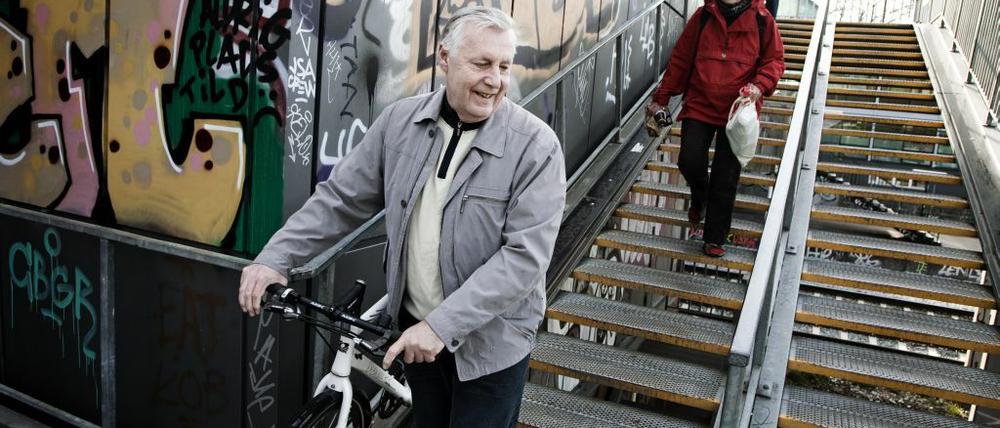
© Gitte Sofie Hansen
Urban Transport: Gearing up for bicycles
Cycling in urban areas is simply the smartest way of transport - that's why Denmark is a country of cyclists, says Henrik Dam Kristensen. Let's share our experiences with a view to getting even more Europeans in the saddle in the coming years.
Denmark is a country of cyclists. Especially in Copenhagen, Aarhus and other larger cities, the bicycle plays an important role in daily traffic, bringing people to and from work, education and social activities. In Copenhagen, for example, the bicycle is used by more than one in three commuters every day.
If you ask a Dane exactly why the bicycle is so popular, he or she would likely be hard pressed to come up with a quick answer - it is simply the natural choice for many people. As a result 95 % of the Danish population own a bicycle. I myself often use my bicycle for both practical and leisure purposes.
In part, cycling may be perceived as trendy, sending a message of a healthy lifestyle and environmental consciousness. But far more importantly, the bicycle is often quite simply the smarter choice, especially in urban areas. No waiting in long lines of cars, no driving around in search of a place to park. Furthermore, bicyclists often augment their bicycles in order to be able to transport small children or to carry groceries. Put simply, no other means of transportation so effectively combines fast and inexpensive transport with sustainability - all the while improving your health.
The Danish authorities - both nationally and locally - deliberately integrate cycling in transport policies and urban planning, thus underlining the bicycle's strong position in the Danish transport system. Accordingly, cycling is an integral part of infrastructure development in cities and towns through continuous investments in bicycle lanes and bicycle parking.
Though cycling is a popular mode of transport in Denmark, the Danish Government and a broad majority of the Parliament has a clear aim of further increasing the use of bicycles - especially bicycle commuting. New funds are allocated.
The larger portion of these funds are aimed at co-funding coherent and innova-tive bicycle projects in cities and towns as this is where the bicycle's potential is best realised with many short-distance trips. The partners and co-funders of such projects can be municipal authorities, organisations, businesses or joint ventures between several actors.
Currently, a total of 86 ongoing national and local projects within the themes of urban bicycle transport, designated parking for bicycles, biking to school and leisure activities, campaigns etc. have been initiated via funds from the new cycling policy.
One recent and innovative example is a new "bicycle super lane" from the the part of greater Copenhagen called Albertslund to the city centre. The 17 kilometer high-class bicycle lane runs through several different municipalities. Ac-cordingly, the project is a very positive example of different authorities collaborating in order to reach solutions that transcend the boundaries on a map.
I personally believe that this holistic approach to infrastructural planning is the way forward in order to secure wide-ranging and efficient bicycle solutions - in both Denmark and Europe.
In many urban areas throughout Europe, the authorities have utilised innovative approaches in order to improve conditions for cyclists. I applaud these efforts, as the bicycle can play an important role in reducing the environmental impact from transport, while also contributing to improving public health. Let's share our experiences with a view to getting even more Europeans in the saddle in the coming years.
As a way of supporting the exchange of ideas, the Danish Presidency would like to use the occasion of the Europe Day on 9 May 2012 to focus on Green Mobil-ity issues. In a number of European capitals, Danish embassies are therefore preparing various public events with the aim of highlighting the positive effects of bicycles in our daily transport.
Henrik Dam Kristensen is the Danish Minister for Transport
- showPaywall:
- false
- isSubscriber:
- false
- isPaid:
- showPaywallPiano:
- false